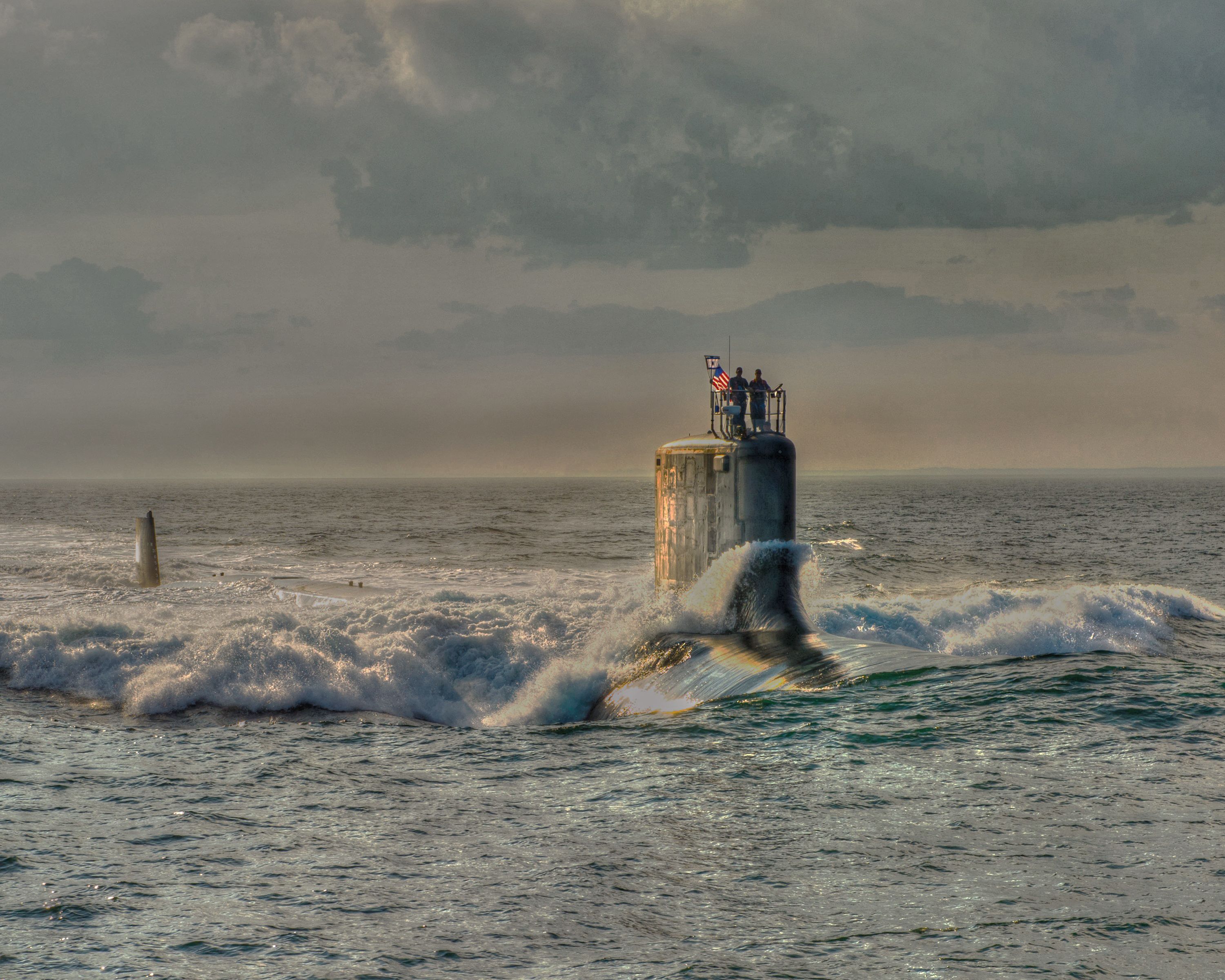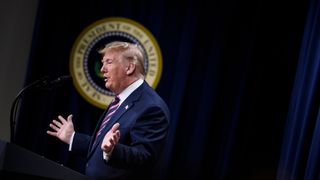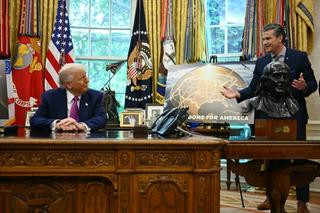It was offensive, thoughtless, and ridiculous for President Donald Trump to ponder aloud at a press conference with Benjamin Netanyahu about America colonising Gaza, moving out the existing population, and turning it into a seaside holiday destination. Given how many statements Trump has made like this as president, not just as a candidate, it is tempting to see Trump as uniquely dangerous.
Trump is dangerous but he is not as “new” as he is made out to be by our news outlets. His approach to the world has much in common with that of Ronald Reagan and George W. Bush. To date, Trump’s foreign policies have neither been as destructive as Bush’s military interventions in Iraq and Afghanistan nor as devastating as Reagan’s provision of deadly military “aid” to militias in foreign nations.
Given how many statements Trump has made like this as president, not just as a candidate, it is tempting to see Trump as uniquely dangerous.
One of the big problems with following Trump is that he is constantly lying, exaggerating, and making attention-seeking statements. Trump is also a lightning rod for conspiracy theories that he feels compelled to repeat (which makes following Trump an act of egregious self-harm, as you are paying attention to the daily rantings of the world’s most powerful man-child). Since 20 January 2025, the amount of disinformation and nonsense spoken by Trump has been staggering. Take, for example, his claim in his second inaugural address that 38,000 Americans died while building the Panama Canal: Time magazine reveals that “the real number was likely closer to 350 people.” Similarly, Trump recently erroneously claimed that the South African government was “confiscating land, and treating certain classes of people VERY BADLY” in a post on Truth Social; in his first term he asserted that “large-scale killings” of white South African farmers were taking place. This “support” for white South Africans is reminiscent of Reagan’s policies toward apartheid South Africa, including his ill-informed statement in 1985 that South Africa had “eliminated the segregation that we once had in our own country.”
How does one cope with Trump polluting our news feeds? During the first Trump administration, people often shared works from popular psychology explaining that there is a particular category of low I.Q. individuals who lack the ability to deeply reflect or question themselves; apparently such people make highly confident politicians because they do not let their ignorance get in the way of their outward confidence or arrogance. Narcissism can have a similar impact, given the desire of the narcissist to be at the centre of our attention by whatever means. These psychological understandings are somewhat useful, but as a political historian and International Relations theorist, my instinct is to look for bigger political trends across time, to look for continuities and discontinuities in presidential foreign policymaking.
As noted above, in my view, Trump is not entirely sui generis. He actually fits within a pattern of Republican leaders since Reagan, where a heady mix of ignorance and arrogance is a key component of their approach to foreign policymaking. J. William Fulbright’s The Arrogance of Power (1966) and William Lederer and Eugene Burdick’s The Ugly American (1958) both argued that a lack of knowledge and regard for other nations has long been a weakness of American foreign policymaking. Before I start sounding anti-American (a topic which I have written extensively about), a similar type of ignorance and arrogance is common in the foreign policymaking of many nations.
He actually fits within a pattern of Republican leaders since Reagan, where a heady mix of ignorance and arrogance is a key component of their approach to foreign policymaking.
With great power and wealth should come great responsibility. The United States Agency for International Development (USAID), created during the Kennedy administration in 1961, assumed that responsibility, and its programs have generally enhanced global support for America. Meanwhile, American arrogance and ignorance undermine the nation’s global credibility and support. Much has been written about the arrogance of American foreign policy—Peter Beinart’s excellent work The Icarus Syndrome is the best overview of American hubris abroad. When it comes to the influence of ignorance, however, far less has been written. This is a shame because ignorance is often a key ingredient in contemporary US foreign policymaking.
Given the power and influence of the US globally, having presidents and leading politicians that are generally not particularly interested in the rest of the world is a major problem. Many leading US politicians are in fact contemptuous of other nations, and too few aspiring leaders ever do the important work of learning the history and languages of other nations. When an ill-informed but overconfident politician is elected and then is forced, or feels compelled, to have views and policies on Latin America, Iraq, or Gaza today, the range of actions on the table is often broader than makes any sense to conventional International Relations theories like realism or liberalism. Their ideas can be more reckless than any basic notion of prudence would support, because the costs, the loss of lives, the potential backlash, and the likely lasting consequences of their foreign policies are not sensibly thought through or in fact cared about. A close reading of the Iran-Contra scandal and US military support for forces within Nicaragua and El Salvador during the 1980s supports this interpretation of US foreign policymaking. Alan McPherson expertly overviews these policies in his recently published The Breach: Iran-Contra and the Assault on American Democracy (2025).
Trump’s personality, the nature of his advisors, and the character of the right-wing movements that support him, all make this current moment different from the situation during the Reagan administration in important ways, but there are also plenty of continuities. Surveys show that Trump is widely disliked globally, but his foreign policies have not yet been anywhere near as thoughtless and damaging as George W. Bush’s decision to invade and occupy Iraq. That said, the damage Trump is allowing Elon Musk to currently inflict on vital humanitarian aid policies, which often continue from one administration to the next, is very concerning. This ongoing destruction of the capacity of the federal government seems one of the newest elements of the second Trump administration’s foreign policy positions to date. I am not arguing for complacency when it comes to the Trump presidency, as many terrible things could occur during the second Trump presidency (and many already are occurring), but, as I have argued, this isn’t entirely new.
Trump’s worst foreign policy decisions to date are on environmental policy. These are driven by arrogance, ignorance, and an alignment with certain business interests. Ignoring global warming and promising policies underpinned by slogans like “Drill, baby, drill” will make a terrible situation even worse. Again, however, George W. Bush and Reagan had a similar disregard for the environment.
Although Trump’s appalling treatment of Canada this term is unprecedented, a lot of what has occurred with Mexico and Canada to date is bluster. Escalating in a standoff with China, by contrast, could lead to a devastating war.
During Trump’s first term, he was very reluctant to commit American troops abroad and was highly critical of keeping them in Afghanistan, which he saw as a lost cause. This echoed the approach of the Reagan administration, perhaps best characterised as “talk aggressively but don’t commit the US military to fight overseas” (apart from the invasion of the tiny island of Grenada in 1983). This time around, however, Trump claims that he wants to make Greenland, the Panama Canal, Canada, and now Gaza, US territories. To achieve this would require military intervention, as there are no signs the US would be an empire by invitation in any of these places. Trump seems to be treating all three territories as pieces of real estate the US can acquire. Unfortunately, such simplistic thinking from a US president also isn’t new: George W. Bush’s idea that most Iraqi citizens would embrace the invading US military and his “freedom agenda” was also delusional.
In the months ahead, the big issue to watch is immigration, which should be sensibly seen as a domestic and foreign policy issue. Stopping the flow of immigrants across US borders and removing illegal immigrants and asylum seekers from the US will increasingly be done by the US military, which is likely to change the character of the US from a flawed liberal sanctuary for desperate people from all over the world to a white nationalistic nation. If Trump achieves his anti-immigrant policies, this will indeed make his presidency different from earlier Republican presidencies as the flow of many of the world’s most determined and hard-working individuals into America will be significantly diminished. Ultimately, this will change both global perceptions and the character of the United States.
When it comes to Trump’s foreign policy, separating out real threats from arrogant and ignorant throw-away lines is always going to be challenging. My biggest fear with Trump is escalation: that he will feel challenged, then he will double down on a threat or ultimatum. Although Trump’s appalling treatment of Canada this term is unprecedented, a lot of what has occurred with Mexico and Canada to date is bluster. Escalating in a standoff with China, by contrast, could lead to a devastating war. In this regard, perhaps Trump is uniquely dangerous, because in a crisis it is hard to have faith that Trump would be restrained or guided by his advisers or foreign policy experts. Due to this fear, many of us feel compelled to follow the Trump presidency more closely than we might otherwise wish to.




.jpg?rect=0,80,3000,1989&fp-x=0.5&fp-y=0.44772296905517583&w=320&h=212&fit=crop&crop=focalpoint&auto=format)




